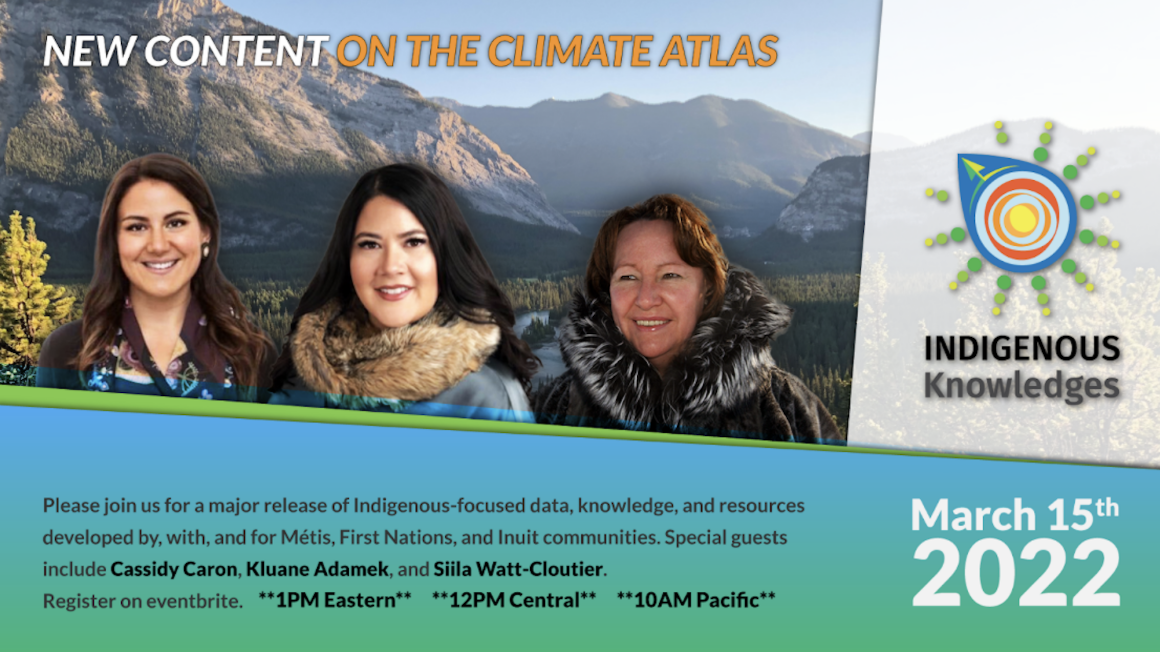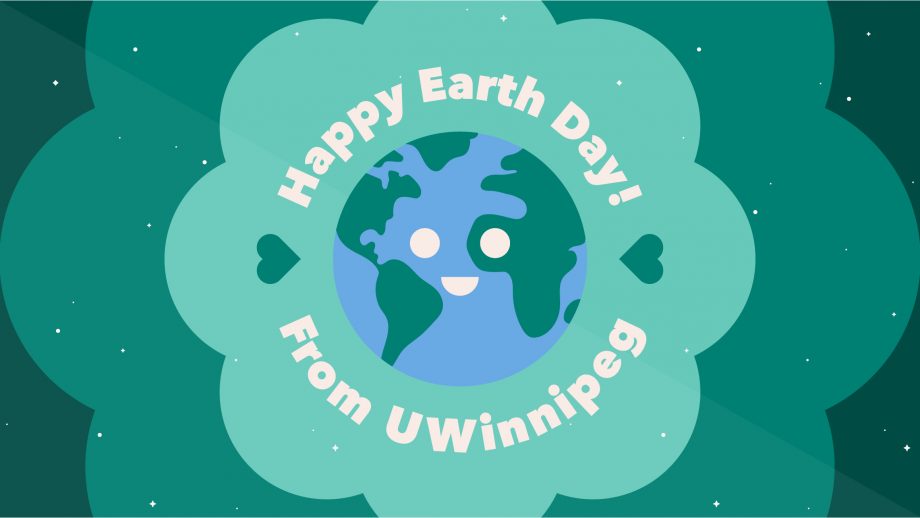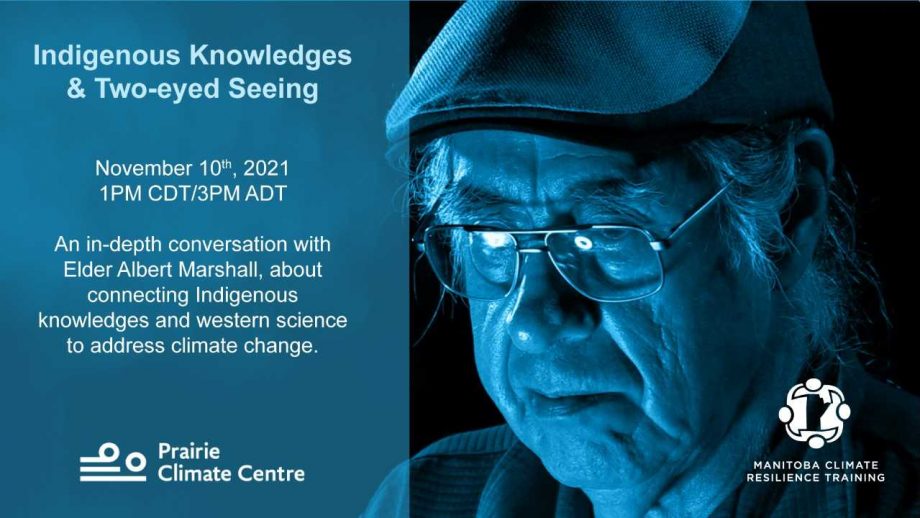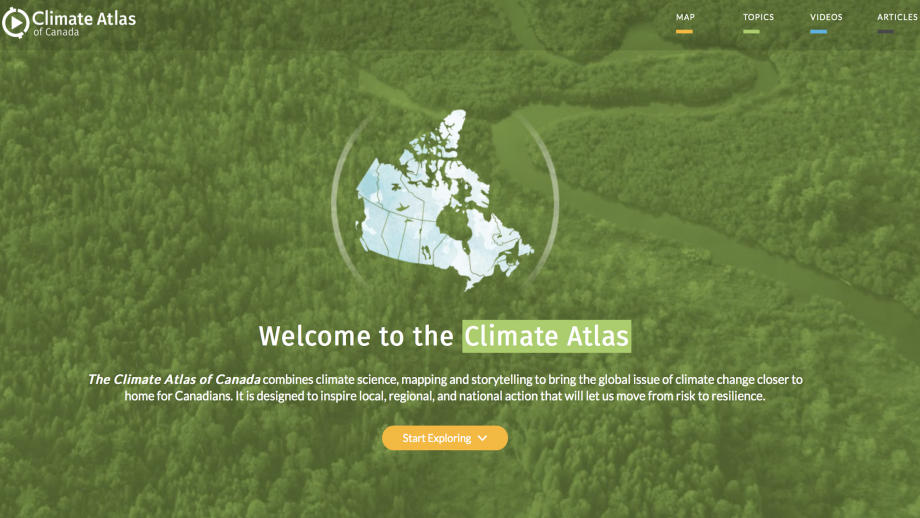Treaty 1 Territory in the Homeland of the Métis Nation — The University of Winnipeg’s Prairie Climate Centre (PCC) has co-developed and released Indigenous Knowledges content and data on the Climate Atlas of Canada by, with, and for numerous First Nations, Inuit, and Métis organizations and communities.
The official online launch will take place at 12:00 pm Central today – registration/event details here – and feature prominent Indigenous voices including:
- Cassidy Caron, President of the Métis National Council (MNC)
- Kluane Adamek, Assembly of First Nations (AFN) Yukon Regional Chief
- Siila Watt-Cloutier, Inuk climate advocate and Nobel Peace Prize Nominee
By taking a distinctions-based approach, this new Indigenous content honours the diverse wisdom of Elders, Knowledge Keepers, community leaders, and other experts from coast to coast to coast. This First Nations, Inuit, and Métis content is available through videos, articles, and climate maps at the local, regional, and national scale.
It is available now at: www.climateatlas.ca/indigenous
This Indigenous Knowledges content has been developed over many years of collaboration, following the guidance of an Indigenous Leadership Group of respected Elders, Knowledge Keepers, and leaders, as well as partnerships with the Assembly of First Nations (AFN) and Métis National Council (MNC). Following principles of “Two-eyed seeing” – that respectfully brings together Indigenous wisdom and science – the launch also includes climate data projections for First Nations, Inuit, and Métis communities and territories.
This launch represents the first time that nationally-focused climate projection data and associated resources for Indigenous communities have been made available and includes:
- A distinctions-based Indigenous Knowledges section of the Climate Atlas of Canada, which features resources to support First Nations, Inuit, and Métis communities;
- Climate data for 634 First Nations communities interactively mapped nationally;
- Climate data for 53 Inuit communities interactively mapped across Inuit Nunangat;
- Métis climate projects interactively mapped across the Métis homeland
- A new series of First Nations, Inuit, and Métis short documentary videos collaboratively developed with Elders, Knowledge Keepers, and Indigenous organizations and communities.
Climate Impacts for Indigenous Communities
The Climate Atlas of Canada presents data and reports indicating that nearing the end of the century (2051-2080), if we continue to follow a high carbon scenario (known as RCP 8.5), Indigenous communities are projected to see significant changes on average:
Lytton First Nation (BC): 37 more +25°C days a year
Heiltsuk First Nation (BC): 7 more heavy precipitation days (20 mm)
Kluane First Nation (YK): 42 fewer days a year lower than 0°C
Vuntut Gwitchin First Nation (YK): 49 fewer -30°C days a year
Piikani First Nation (AB): 34 more +30°C days a year
Samson First Nation (AB): 4°C increase in annual mean temperature
Tuktoyaktuk (NWT): 59 fewer -30°C days a year
Liidlii Kue First Nation (NWT): 14% increase in summer precipitation
Cowessess First Nation (SK): Average highest temperature of the year 39.3°C (up from 34.1.1°C)
Poundmaker First Nation (SK): 44 more +25°C days a year
Arviat (NU): 57 fewer -30°C days a year
Iqaluit (NU): 25% increase in annual precipitation (an increase of 113 mm each year)
Peguis First Nation (MB): 11 more +20°C nights a year
Misipawistik First Nation (MB): 37 fewer days a year lower than 0°C
Hiawatha First Nation (ON): 42 more +30°C days a year
Mississaugas of the Credit (ON): Average highest temperature of the year 38.4°C (up from 33.5°C)
Kuujjuaq (QC): 40 fewer days a year lower than 0°C
Nation Anishnabe Du Lac Simon (QC): 22% increase in winter precipitation
Indian Island First Nation (NB): 42-day increase in frost-free season
Membertou (NS): 4°C increase in fall average temperatures
Rigolet (NL): 14 more +25°C days a year
Media Demo of Indigenous Climate Atlas
Featuring Hetxw’ms Gyetxw (Brett Huson) and Dr. Ian Mauro
Indigenous-led Climate Solutions
Through diverse partnerships, the PCC has been able to document Indigenous climate solutions with a number of organizations and communities, and selected examples include:
- Indigenous Knowledges
- Indigenous Conservation, Restoration, and Firefighting
- Indigenous Wind and solar power initiatives
- Participatory Youth Video
QUOTES:
“As Inuit, we rely on the cold, the ice and snow, and climate change is disrupting our way of life in the Arctic. Inuit Elders and communities have been on the frontlines of climate change for many decades, we’ve seen the changes, which are now causing extreme impacts globally. We can find solutions to this planet in peril, especially when we respectfully bring science and Indigenous wisdom together, and the Indigenous content on the Climate Atlas is a world-class example of this in practice.”
Siila Watt-Cloutier, Inuk Climate Advocate and Nobel Peace Prize Nominee
“The impacts of climate change affect everything — especially the future of those yet unborn — and how we respond matters. Through our stories, songs, teachings, and the way we as First Nations live and see the world, there’s so much we have to contribute. Modern science cannot be the only way we view things, we actually have to take a whole new First Nations lens, and put these lenses together, and that’s what we’re looking to do. This new content on the Climate Atlas brings these two worlds holistically together for future generations.”
Kluane Adamek, Assembly of First Nations Yukon Regional Chief
“Climate change is rapidly affecting our Métis communities in many ways. As Métis, we are intrinsically tied to the land and we must do our part to protect it now and for our future generations. The Climate Atlas does an incredible job of weaving traditional Métis knowledge into other scientific approaches resulting in ways that can best inform responses to the climate crisis, while also highlighting the many efforts currently being implemented by our communities.”
Cassidy Caron, President of the Métis National Council
“The Climate Atlas of Canada is an important tool that supports our communities and country in understanding and adapting to climate change. This latest update includes First Nations, Inuit, and Métis knowledge and associated climate data and is a significant national contribution that demonstrates how climate research and Indigenous ways of knowing can respectfully be brought together to advance reconciliation, climate preparedness, and protection of the environment. Environment and Climate Change Canada has been pleased to support this work at the University of Winnipeg’s Prairie Climate Centre that is co-developed by, with, and for Indigenous communities and organizations.”
MP Terry Duguid, Parliamentary Secretary for Environment and Climate Change Canada, Government of Canada
“In the wake of major climate disruptions nationally, this launch represents a major set of resources for Indigenous communities to increase their climate awareness, preparedness, and resilience. These tools build on the deep and long-term connection, capacity, and expertise Indigenous peoples have regarding navigating environmental and cultural change.”
Hetxw’ms Gyetxw (Brett Huson), member of the Gitxsan Nation and Research Associate at the Prairie Climate Centre, University of Winnipeg
“We’re launching a new interactive map of Canada that places First Nations, Inuit, and Métis communities and territories at the forefront, and for the first time will allow society to reflect on how climate futures are likely to affect Indigenous peoples from coast to coast to coast. By linking Indigenous Knowledge and science, these tools are designed to support community-level climate action, advocacy, and adaptation planning.”
Dr. Ian Mauro, Executive Director of the Prairie Climate Centre, University of Winnipeg
SOCIAL MEDIA TAGS:
#climatestories #climateatlas #indigenousknowledges #indigenouscience #indigenousmaps #climatechange #prairieclimate
FUNDING:
Funding for this project has been made possible through Environment and Climate Change Canada (ECCC), the Social Sciences and Humanities Research Council (SSHRC), The Assembly of First Nations (AFN), and Métis National Council (MNC).





